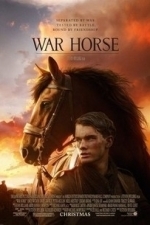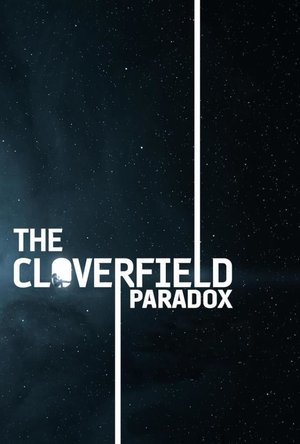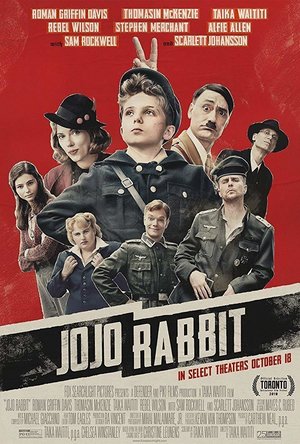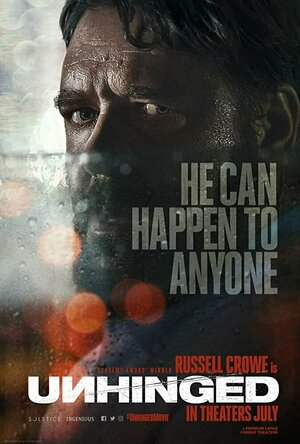Movie Metropolis (309 KP) rated War Horse (2011) in Movies
Jun 11, 2019
However, here, the ‘king’ relaxes a little and delves into proper old fashioned story telling with the emotional rollercoaster that is War Horse. Teaming up with John Williams once again, the duo delivers a beautiful score to accompany a beautifully shot film.
Jeremy Irvine stars alongside a full roster of celebrities including Harry Potter’s David Thewlis and Thor’s Tom Hiddlestone in what can only be described as one of Spielberg’s greatest films.
The film opens with some awe inspiring shots of the Devon countryside, with Albert Narracott (Jeremy Irvine) staring, masterfully at two horses in a field. Fast forward a few years and his alcoholic father Ted, played wonderfully by Peter Mullen purchases one of them in an auction, hoping to turn it into a plough horse. This horse becomes the focus of the entire film and is nicknamed Joey by Irvine’s character.
After the usual, Spielberg sentimentality, Joey is summoned to help the English army in the First World War. Obviously, this doesn’t go down too well with Albert and he promises that one day, they will find each other. It’s hard to describe just how heart-breaking these scenes are, as Joey is led away by his new trainer (Tom Hiddlestone) and all Albert can do is watch.
After being defeated by the Germans in a deadly ambush, Albert is informed that Hiddlestone’s character, Captain Nicholls has been killed in battle. Assuming the worst, Albert starts to prepare to either reunite with his beloved steed, or discover whether or not he has perished.
Spielberg has created a shockingly beautiful film as Joey loses Captain Nicholls and roams the countryside unmanned trying to escape the clutches of the German army. Unfortunately, on occasion, he runs right into them and becomes an artillery horse, pulling canons and other weapons.
The shots of no-man’s land as the horse time and time again escapes are breath-taking and show the scale of the destruction like nothing I’ve ever seen. Spielberg has a knack for scale and in War Horse, this is exceptionally poignant; shots of a horse graveyard and the grey barren landscape are examples of fine film-making. To say you’ll be in tears is somewhat of an understatement as Joey, terrified from the ordeal he is being taken through loses comrades, crashes through barbed wire and nearly gives up on life.
This coupled with John Williams best score since Jurassic Park ensures that this is a subtle blockbuster to be enjoyed by all.
However, the film isn’t perfect. On occasion, it delves into unnecessary sentimentality and Spielberg must’ve had a book of movie clichés with him at some points during the shoot, like the cheesy sunset ending and the token pulling through in the face of adversity. These are, however, small points in a film which is a spectacle to behold.
The animals no doubt steal the show, but their human counterparts do well in their roles. Jeremy Irvine is fabulous and was an unusual but totally justified choice for the part. David Thewlis shows how versatile he really is as an actor, playing the heartless landlord, ready to ship the Narracott family out of their farm.
War Horse is a film which hits with a huge dose of emotion. John Williams and Steven Spielberg are an unstoppable combination and what the film does best is show off its directors prowess as an artist, not a film-maker. The special effects are sparse because the story doesn’t require them, but when they are there, such as in the battle scenes, they help the story along, instead of hindering it.
It may not quite match the dizzy heights of Schindler’s List and Jurassic Park as Spielberg’s best, but it fits in between excellent Spielberg and spectacular Spielberg. Take some tissues and prepare yourself and you’ll be all set.
https://moviemetropolis.net/2012/01/22/review-war-horse-2012/
BankofMarquis (1832 KP) rated The Cloverfield Paradox (2018) in Movies
Feb 22, 2018
Which is too bad, for THE CLOVERFIELD PARADOX is a very fun, very well made, very well acted "10 Little Indians" style Sci-Fi film (you know, the type of film where a finite group of folks are marooned someplace - like and island or an isolated, creepy mansion and are picked off one by one). This time, they are on a space station, and when an experiment goes awry, bad things start to happen.
I stated that this film is another entry in the "Cloverfield family of films", so let me explain that. The overseer of these films is none other than JJ Abrams and he has stated that there will be a series of films - very different in style, type and substance - that will (somehow) be related in the Cloverfield Universe. And, so far, he has fulfilled his promise (at least to me) - for those that just want "more of the same", he has alienated.
The first film, CLOVERFIELD, is a "found footage" film about a giant monster (think Godzilla) rampaging through modern day New York City. Of the 3 films,thus far, in the Cloverfield family, this one (for me) was the least effective (especially because I am not a big fan of "found footage" films). The 2nd film was 2016's 10 CLOVERFIELD LANE and was a very effective psychological horror/drama starring John Goodman as a fellow who has rescued/captured (kidnapped?) Mary Elizabeth Winstead and has locked her in his survival bunker in order to - he says - save her from the monster above. The film effectively goes back and forth with wondering what is scarier - the monster above or the monster (Goodman) below. If you haven't seen 10 CLOVERFIELD LANE, I highly recommend it.
The third installment, then, is THE CLOVERFIELD PARADOX, a prequel of sorts about a group of scientists aboard a space station conducting a desperate, highly dangerous power experiments to solve the world's energy crisis. When something goes wrong, bad things happen. And since this is in the Cloverfield family, you gotta know it has some connection with how the Cloverfield monster got on Earth.
But this film doesn't really concern itself with the Cloverfield monster - which is what I think is angering the "fanboys" - this film is about the survival of the charismatic, international scientists that are stranded on this space station after the accident. Almost every one of the actors in this film are "oh...that guy" type actors - all very good. From German actor Daniel Bruhl (RUSH) to Chinese actress Ziyi Zhang (CROUCHING TIGER...) to Englishman David Oyelowo (SELMA) to good ol' John Ortiz (a million different things) - the cast is strong, fun to watch and easy to root for. They all are in service to the plot devices (and predicaments they are in) and they serve the plot (and the film) well.
Special notice should be made for Chris O'Dowd (BRIDESMAIDS) who brings some much needed levity via his deadpan humor approach to everything as the ship's handyman and, especially, Gugu Mbatha-Raw (BELLE) as the heroine of the adventure from through who's eyes we encounter the events of the film.
I have stated before that I am a sucker for these types of "10 Little Indians who-will-survive" films and this one is no exception. Go in with no preconceived notions, roll with what the film throws at you and you'll have a good time time, too.
THE CLOVERFIELD PARADOX is now streaming on Netflix.
Letter Grade: B (it is the very definition of a "B" movie).
7 (out of 10) stars and you can take that to the Bank(ofMarquis)

Dog Training - Learn How to House Train a Dog
Lifestyle and Education
App
Learn how to train your dog and correct behavioral problems from this app. Discover how to train a...

Gay Chat & Dating - Partner
Dating and Social Networking
App
Partner is a cool gay dating app for real communication only. Our superiority over other dating...

Me - Caller ID Spam Protection
Social Networking and Utilities
App
Me - What You Call Me? discover exactly what other people really think about you! ME - What You...
Brian Eno recommended Early Works by Steve Reich in Music (curated)
Lucy Buglass (45 KP) rated Jojo Rabbit (2019) in Movies
Oct 14, 2019
Whilst you might feel some apprehension about the concept of a 10-year-old boy who has Hitler as an imaginary friend, Taika Waititi has turned it into something brilliant and poignant.
As mentioned above, the film follows Johannes ‘Jojo’ Betzler, who lives in Nazi Germany. He’s a fanatic and is driven by his desire to serve Adolf Hitler in the German army during World War II, even joining a Hitler Youth Camp which is run by Captain Klenzendorf (Sam Rockwell).
Jojo is unlike any other child protagonist I’ve seen, because it’s easy to have very mixed feelings about who he is as a person. He’s a child and his everyday behaviour is indicative of someone who lacks maturity, resulting in some laugh out loud moments.
However, a lot of what he says happens to be horrendous insults towards the Jewish community. He’s fuelled by a love of Hitler (even going as far as to describe him as his ‘best friend’).
Throughout the film, he imagines scenarios in which Hitler is there with him, such as when he’s looking in the mirror and giving himself a pep-talk.
The strength of Jojo Rabbit‘s protagonist is a testament to actor Roman Griffin Davis, and I found it hard to believe that this was his first ever film performance. He’s funny, flawed, and a very well-rounded character brilliantly brought to life.
As for Jojo’s imaginary Hitler, he’s hysterically funny and not at all how you’d imagine the real man to be. Played brilliantly by director Taika Waititi, he is a caricature of a deplorable historical figure, and fuels Jojo’s delusions of how wonderful he is.
He’s simply someone’s interpretation of a political leader, created by a child who has been brainwashed into believing Nazi propaganda by adults in his life.
This bubbly oversimplification of a dictator is what you’d expect from a naive child, who isn’t fully aware of the atrocities around him.
The fact Taika Waititi plays this version of Hitler feels important, because he’s mocking him in the best possible way. As a Jewish man, it feels very appropriate that he criticises Hitler’s ideology through his satirical performance. It was brilliant.
Adding jokes to such a horrific situation is difficult, but this is where Jojo Rabbit really excels. The balance between humour and gut-punching reality checks is beautifully done, and there were times when I wasn’t sure whether my tears were from laughing or because I was genuinely sad at what I’d just seen.
Relationships are an important part of the film, particularly the one between Jojo and his mother Rosie (Scarlett Johansson). However, this becomes strained when he finds out that his mother is hiding a young Jewish woman in their home.
Jojo’s meeting with Elsa Korr (Thomasin McKenzie) is central to the story and gives us a real insight into the horrific treatment of Jewish people during this period, and the extreme lengths they’d go to keep themselves safe.
Despite Elsa’s life constantly being in jeopardy, she’s very sassy and gives young Jojo a run for his money once the two meet. The way the two characters bounce off each other is exceptional, and again, you’ll laugh and cry in equal measure.
I was also impressed by some brief appearances in the film such as Rebel Wilson as Fraulein Rahm, who I found hilarious in this film. I must admit I’m not always a fan of her work, but here she really delivered.
Stephen Merchant as Captain Deertz and Archie Yates as young Yorki are also worthy of praise, as every time they were on screen I found them delightful to watch. Much like Roman Griffin Davis, this was Archie’s first film, and he stole the show every time he was in a scene.
Jojo Rabbit is, simply put, political satire at its finest. As a result of this, it’s an emotional rollercoaster and one that I am excited to revisit whenever I get the chance.
It’s darkly funny with an important overall message of confronting ideologies, and I’d urge you to seek it out ASAP.

Baby Monitor 3G
Lifestyle and Health & Fitness
App
The First HD quality multiplatform Baby Monitor is here! BABY MONITOR 3G is a universal video and...

Universalis
Lifestyle and Reference
App
Join the thousands of people who use Universalis daily! You will get: • The Catholic liturgical...
Bob Mann (459 KP) rated Unhinged (2020) in Movies
Aug 8, 2020
In the movie it was a certain Rachel (Caren Pistorius) who randomly crosses the ursine-one's path. She encounters his unnamed character ("Man") at traffic light. Rachel is having a bad day herself. But the unstable and unhinged man makes it his mission to show her "what a bad day really feels like".
Having had over 40 years of driving experienced, I've experienced two incidents of genuine road rage against me. One of these was in similar circumstances to Rachel's experience. By me giving slightly more than a 'courtesy tap' on the horn to a driver who cut me up. Both though were 'white-knuckles-on-the-wheel' scary experiences. So although, as a viewer, I felt a degree of irritation at Rachel's stubborn actions in the movie, it didn't seem completely 'out there'. You only need the other guy to be a psycho, and....
What follows is a thriller having a vein of dark comedy running through it. Yes, it's relatively predictable and above-average on the gore rating but nonetheless enjoyable.
The movie, of course, blends some staples of the thriller genre. Firstly there is that favorite trope of Spielberg of a malevolent force, persistently lurking in the shadows to wreak havoc at any time. (Think of those classics "Duel" and "Jaws". Blended with that is a recurring plot-point of Hitchcock movies: the every-man (in this case every-woman), in the mode of James Stewart or Cary Grant, uprooted from their hum-drum normal lives to suddenly face peril they are unequipped to deal with.
Holding that role here extremely well is Caren Pistorius as the luckless Rachel. She's only had bit parts in previous movies I've seen - "Denial", "Mortal Engines" and "The Light Between Oceans". But here she gets a starring role, up front and central, and I thought she pulled it off really well. She also gets to deliver the best line in the film in the violent and bloody denouement! A leading actress I would like to see more of for sure.
The star-power evident here though is Crowe. His portrayal as the steely-eyed unhinged psychopath is beautifully and believably done. A scene in a diner is especially chilling, featuring Jimmi Simpson as the unfortunate Andy, Rachel's divorce lawyer. (If, like me, you were desperately trying to place the actor, Simpson played the young 'good-guy' tourist in the brilliant first season of "Westworld".)
Unhinged is nicely penned and, in the main, nicely directed. With the pen is Carl Ellsworth, who's sparse career has delivered chillers such as "Disturbia" and "The Last House on the Left". And although we've been in this sort of stalker territory numerous times before, the script of "Unhinged" delivers some nice twists. For example, the dangers inherent in "Find My Friends" style tracking apps. One negative though for me is the rising body-count of "innocents". It gave me the slightly icky feeling I felt when the jumbo jet is crashed in "Die Hard 2".
Keeping up the pace is German director Derrick Borte, someone new to me. The car chases incorporated into the action are tense (reminiscent sometimes of "Baby Driver") and well-shot (by Irish cinematographer Brendan Galvin). There are the occasional "oh, really!!" moments, that a more experienced director might have chosen to excise. But on the whole, this is a taut little thriller, wisely sticking to a 90 minute running time, and never losing my interest.
Although formulaic, and at times extremely violent for a '15' certificate, "Unhinged" made a welcome and entertaining return for me to the multiplex after the Covid break.
(For the full graphical review, please check it out here - https://bob-the-movie-man.com/2020/08/08/one-manns-movies-film-review-unhinged-2020/).




